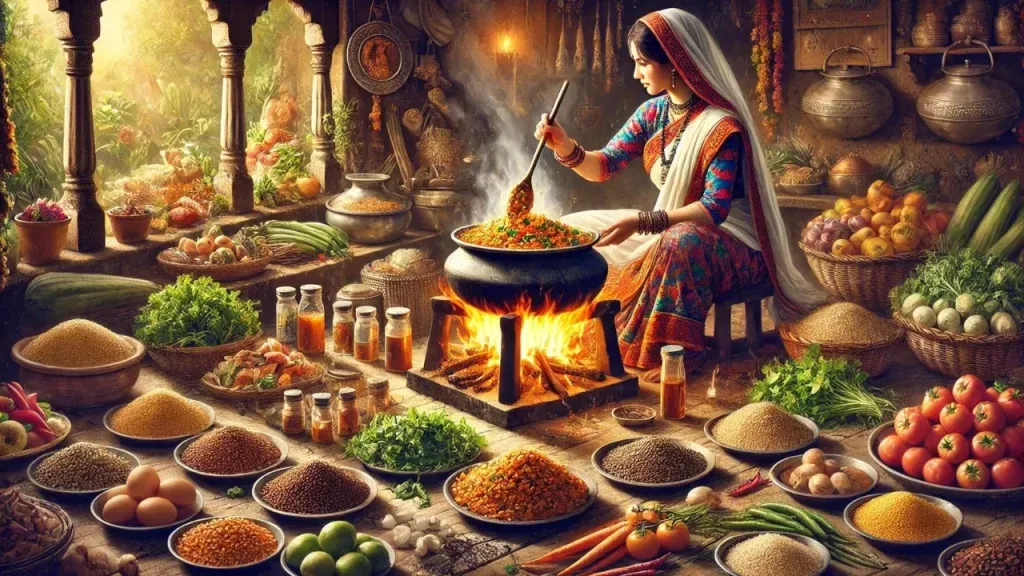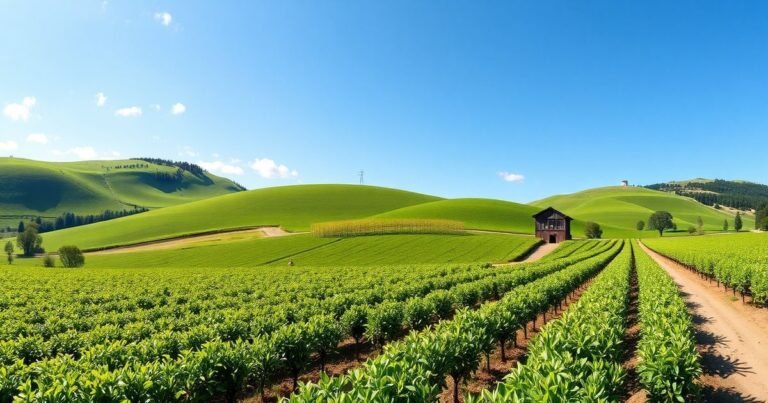
Agrawau
Introduction to Agrawau: A Journey into its Origins
Agrawau is a term that holds significance in various historical, cultural, and regional contexts. Although it may not be widely recognized globally, Agrawau has its roots deeply embedded in ancient history and is associated with communities, trades, and practices that have shaped the regions it’s connected to. The origins of Agrawau can often be traced back to traditional practices, economic growth, and social identities that have evolved over centuries.
The word “Agrawau” may resonate with different meanings, depending on the cultural or geographical context. It is linked to a specific community or region in many areas, symbolizing trade, unity, and shared customs. Exploring Agrawau opens up a fascinating window into the lives, practices, and economic impact of those associated with it. This article delves into the historical evolution, cultural significance, and economic role of Agrawau, shedding light on why it remains a noteworthy subject in modern discussions.
Historical Background of Agrawau
The historical journey of Agrawau is filled with milestones that reflect its economic, social, and cultural relevance. Initially, Agrawau emerged as a regional hub where traders and merchants gathered, promoting a unique blend of cultural diversity and economic exchanges. This location, likely due to its favorable positioning along trade routes, became a meeting ground for different communities, each bringing their customs, languages, and goods. The exchange of goods also facilitated the exchange of ideas, traditions, and skills, leading to the rich, multifaceted identity of Agrawau.
Records indicate that Agrawau was pivotal in supporting local economies, with crafts, textiles, and spices among the commonly traded goods. Over time, the community built a reputation for skilled artisanship, particularly in textiles and pottery. These industries became renowned, attracting traders from neighboring regions keen on acquiring Agrawau’s distinct products. The history of Agrawau is a testament to its residents’ resilience and adaptability, maintaining trade traditions even amidst economic shifts and changing political climates.
In addition to trade, Agrawau developed as a center for social gatherings and festivals. These cultural gatherings became symbols of unity, enabling community members to strengthen their ties while celebrating their heritage. Even today, the annual festivals and fairs in Agrawau are significant events that draw people from nearby areas, continuing the age-old tradition of community celebration and economic exchange.
Cultural Significance of Agrawau
The cultural landscape of Agrawau is deeply woven with tradition, language, and art. As a community, Agrawau has fostered a rich cultural environment where language and folklore play an integral role. Many residents speak a unique dialect, carrying linguistic influences from ancient and neighboring languages. This dialect is cherished as a symbol of identity and cultural pride, often passed down through generations as an oral heritage.
Art and craft are other notable cultural elements in Agrawau. The region has a long-standing tradition of producing handwoven textiles, intricate pottery, and beautiful wood carvings. These crafts are more than mere products; they reflect the stories, beliefs, and skills honed over centuries. The artisans of Agrawau have a reputation for their expertise, often training younger generations to carry forward these timeless techniques. These crafts have become a hallmark of Agrawau’s identity, usually attracting art lovers and tourists who seek authentic, handmade artifacts.
Religious and spiritual practices are also prominent in Agrawau’s cultural fabric. The community observes various rituals and celebrations tied to the agricultural calendar, which is essential to their way of life. Seasonal festivals mark planting and harvest cycles, with people coming together to give thanks, pray for good fortune, and celebrate the fruits of their labor. This blend of art, language, and spirituality forms the cultural backbone of Agrawau, ensuring that its heritage remains strong amidst modernization.
Agrawau’s Economic Landscape
Economically, Agrawau has transitioned from a traditional trade hub to a more diversified economy, with various sectors contributing to its growth. Historically, Agrawau’s economy revolved around agriculture, crafts, and trade. Farmers in the area cultivated multiple crops, including grains, vegetables, and herbs, which provided sustenance for residents and served as trade commodities. The agricultural practices in Agrawau remain grounded in traditional methods, though modern techniques are slowly being adopted to enhance productivity.
The craft industry continues to be a significant source of income, with artisans creating products sold in local markets and exported to other regions. These crafts have gained popularity, and the demand for Agrawau’s handmade goods has increased, contributing positively to the local economy. Moreover, the tourism industry is growing in Agrawau as visitors experience its cultural heritage and purchase unique artisanal products. This influx of tourists brings in additional revenue and has led to establishing small hotels, restaurants, and shops.
In recent years, Agrawau has also embraced small-scale manufacturing and entrepreneurship. Young business owners are setting up enterprises and introducing innovative products that blend traditional elements with modern appeal. The local government has recognized the potential for economic development and has initiated various programs to support small businesses, attract investment, and boost employment. The combination of agriculture, crafts, tourism, and emerging businesses makes Agrawau’s economy resilient, adaptable, and poised for sustainable growth.
Social Dynamics and Community Life in Agrawau
Community life in Agrawau revolves around strong social ties and a shared sense of belonging. The residents often participate in communal activities, where everyone contributes to the welfare and development of the area. This sense of community is especially evident during festivals and social events, where everyone comes together to celebrate, often showcasing their traditional attire, music, and dance. The events serve as social gatherings and a means to preserve cultural practices and educate the younger generations about their heritage.
In Agrawau, the family unit holds immense importance, often spanning multiple generations living together or nearby. This multi-generational setup fosters a sense of responsibility and care for one another, with elders passing down wisdom and traditions. The community is characterized by a support network that ensures every member feels valued and included. People in Agrawau believe in working together for the betterment of all, evident in their cooperative agricultural practices and the management of local resources.
Education and skill-building are also essential aspects of Agrawau’s community life. Schools and vocational centers provide young people with academic knowledge and practical skills, ensuring they are well-equipped to contribute to the economy. This emphasis on education highlights Agrawau’s forward-looking approach, combining respect for tradition with preparation for future challenges. Community leaders encourage initiatives that promote literacy, financial independence, and entrepreneurship, which are vital for Agrawau’s social and economic well-being.
The Future of Agrawau: Balancing Tradition with Modernity
As Agrawal moves toward the future, it faces the challenge of balancing modernization with its rich cultural heritage. While economic growth and technological advancements offer numerous opportunities, there is also a concern about preserving Agrawau’s identity. The younger generation is more exposed to global trends and may have different aspirations from their ancestors. However, many young people remain deeply rooted in their heritage and are interested in finding ways to modernize Agrawau without losing its essence.
One approach being adopted is sustainable tourism, which encourages visitors to engage with Agrawau’s culture while respecting its environment and customs. This model helps to generate income without overwhelming the community or diluting its unique character. Additionally, local businesses are exploring e-commerce platforms to sell traditional crafts, ensuring artisans can reach a broader market while maintaining the authenticity of their products. These efforts indicate that Agrawau is keen on adopting innovations that complement, rather than replace, its traditions.
Efforts to educate the community about the benefits of sustainable practices are also underway. Environmental initiatives focus on responsible farming, waste management, and local flora and fauna conservation. By preserving its natural resources, Agrawau aims to protect its ecosystem for future generations while supporting economic activities. Through these sustainable practices and the community’s involvement in decision-making, Agrawau is charting a path toward a future where tradition and progress coexist harmoniously.
Conclusion: The Lasting Legacy of Agrawau
Agrawau is more than just a community or a name; it’s a living testament to the enduring spirit of cultural pride, economic resilience, and social unity. From its historical roots as a trade center to its modern-day efforts in sustainable development, Agrawal stands as a symbol of adaptability and community strength. While challenges lie ahead, particularly in managing the pace of change, the people of Agrawau remain committed to preserving their heritage while embracing the possibilities of the future.
Understanding Agrawau gives insight into the importance of community, tradition, and shared purpose. As it continues to evolve, Agrawau offers a model of how local values and global aspirations can intersect, providing inspiration to other communities facing similar transitions. Agrawau’s journey reminds us that while progress is essential, it is the roots that give a community its true strength and character.







